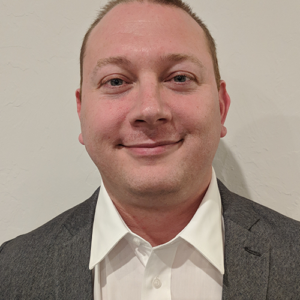When was the last time you gave your mind credit for taking care of you? Even better, you could help make its job just a little easier.
Matthew Hepburn was in college when he realized that he needed to start caring for his mental health more intentionally. He’d worked hard to get into the prestigious Berklee College of Music in Boston, where he studied jazz piano. But he started to feel self-doubt creeping in.
It got to the point that just thinking about putting his fingers to the keys made Hepburn anxious, which brought on self-loathing. This developed into depression.
Looking for a way to address his mental health struggles, Hepburn turned to meditation. He became a valued member of the Cambridge Insight Meditation Center, and eventually a teacher. Now, in addition to teaching meditation, he works for the meditation app and podcast Ten Percent Happier, and hosts the podcast Twenty Percent Happier, in which he interviews other meditation experts.
Hepburn understands that the root of his anxiety — and many other people’s — is that he can’t change his external circumstances. He learned instead to harness the brain’s power to warn us about potential threats, while also managing its impulse to overthink those dangers.
Here, Hepburn explains what we really mean when we say we’re busy, why mental health struggles are not a sign of personal failure — including in leaders — and how meditation can help you learn from life.
Reframe the way you think about being busy
On the one hand, being busy is great. It’s always nice to feel like you’re in demand! However, it can also be overwhelming. Back-to-back meetings and deadlines all day every day start to feel like running on a treadmill that never stops.
When you’re feeling like the treadmill is running you instead of the other way round, it’s time to hit the stop button and reevaluate.
First of all, Hepburn recommends reconsidering what “counts” as busy. We usually define our level of busyness by how much work we have to do, or by other things that we book into our schedule. But every day of your life is equally busy, because it’s made up of the same amount of time, which you spend one way or another.
“It doesn’t matter if I’ve got 11 meetings scheduled in a day, or one meeting scheduled in a day: My day is just as full, because I have the same amount of moments to respond to my life,” Hepburn says.
“Every day of your life is equally busy, because it’s made up of the same amount of time, which you spend one way or another.”
When we say that we’re busy, we’re telling ourselves a story about our lives. Usually, it’s a story about how we have too much to do, and about being overwhelmed. We look at a day with lots of meetings and deadlines, say, and decide that this is what constitutes busyness. But even when we have a leisure day, we’re still doing the same amount. It’s just the nature of the activity that’s different.
Busyness is less about what you’re doing, and more about how you feel about what you’re doing. If your story about being busy is about being pulled in too many directions, or feeling in over your head, ask yourself why you feel that way. It’s probably not because you’re less capable than other people.
“Any sense of it being ‘too much’ is really a signal that you’re concerned that you may not show up, and be the person that you want to be for certain responsibilities,” Hepburn says. “You can then start to let go of anything that you need to let go of in full integrity, knowing that you can’t be the person that you need to be if you’re doing this in addition to these other things.”
Your brain applies different weights to individual moments that are actually equal. If you can notice when it does this, and understand why, you can live each moment more fully and with less anxiety.
Understand that being anxious or depressed is not a personal failing
As a society, we talk about being mentally tough during difficult times, which implies that people who struggle with their mental health are weak. Especially as leaders, we feel an obligation to never reveal doubt or anxiety, lest our teams lose faith in us.
Feeling anxious or depressed is not a sign that you are less mentally competent than anyone else, or that you have somehow let yourself and your team down.
“We take it as a personal failing if we’re feeling anxiety, or struggling in some way,” Hepburn says. But we didn’t create the conditions that led to these feelings. “The question is, what do you do next?” Hepburn explains.
When you can’t change the external circumstances that are causing your mental health to suffer, work to change how you respond to them. Recognize how you’re reacting to them, why you’re reacting that way, and how you can change your approach to lessen feelings of anxiety and depression.
Mindfulness and other types of meditation can help with this process. Hepburn also has an exercise he recommends for temporary relief when anxiety strikes.
Anxiety is something we feel physically as well as mentally and emotionally. This can actually be useful when you’re in the grip of an anxiety spiral.
When you notice that your thoughts are racing and you feel worked up, shift your attention to how your body feels:
-
- Are you tensing your muscles?
- Do you feel nauseous?
- Is your breathing shallow?
It will probably feel uncomfortable: but focusing on physical sensations is a very effective way to break the cycle of those anxious thoughts and feelings, at least temporarily.
Purse your mouth like you’re blowing bubbles through a straw, and take 10 deep breaths, in through your nose and out through your mouth.
Hepburn explains that this has been shown to activate the parasympathetic nervous system, the twin of the “fight and flight” response to stress, which restores your body to its resting state once the threat is over. By intentionally activating this system, you’re letting your body know it can physically relax, which in turn helps your mind relax too.
“It’ll usually give you at least a few seconds break at a time from all the anxious thoughts, and this can help people tremendously,” Hepburn says.
Let your brain learn from life
It may not seem like it when you’ve forgotten your email password — or your house keys — for the third time in a week, but your brain is very good at taking in information it thinks is helpful to you. It has to be, given that its entire job is to move you away from harm and towards things that are safe and enjoyable.
However, our brains are often hampered by one major obstacle: us. If we ignore the messages our brains send us, we can’t use the valuable information they have collected about what we can do to feel better in our lives.
“[If] I’m getting in my own way, and creating unnecessary struggle, I don’t actually have to strategize how to stop doing that, or figure out a new way to live,” Hepburn says. “If I just bring enough awareness to it, the [brain] is intelligent enough to say, ‘Ouch, that hurts. I’m not going to do that anymore.’”
That’s one reason meditation is so important. It’s a way to stop distracting ourselves, and notice of what our brain is trying to tell us.
“Whether I’m exhausted at the end of a work day, or exhilarated; whether I’m sad, whether I’m delighted — those are moments in life to be learned from.”
“My approach to meditation is that I take some time to get quiet and become a student of whatever my life looks like for those few moments,” Hepburn says. It’s not about actively trying to feel better: It’s about accepting how he feels without judgment, so his brain can learn from those feelings.
“Whether I’m exhausted at the end of a work day, or exhilarated; whether I’m sad, whether I’m delighted — those are moments in life to be learned from,” he says.
The conversation with Matthew Hepburn continues on the Leading with Genuine Care podcast. We talk about the power of meditation to improve mental health, how to connect with nature no matter what your environment looks like, what snowboarding taught him about being present in the moment, and more. Connect with me on Twitter and LinkedIn and keep up with my company imageOne. Check out my website or some of my other work here.




